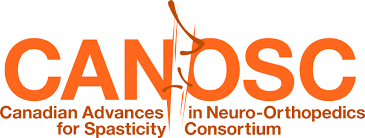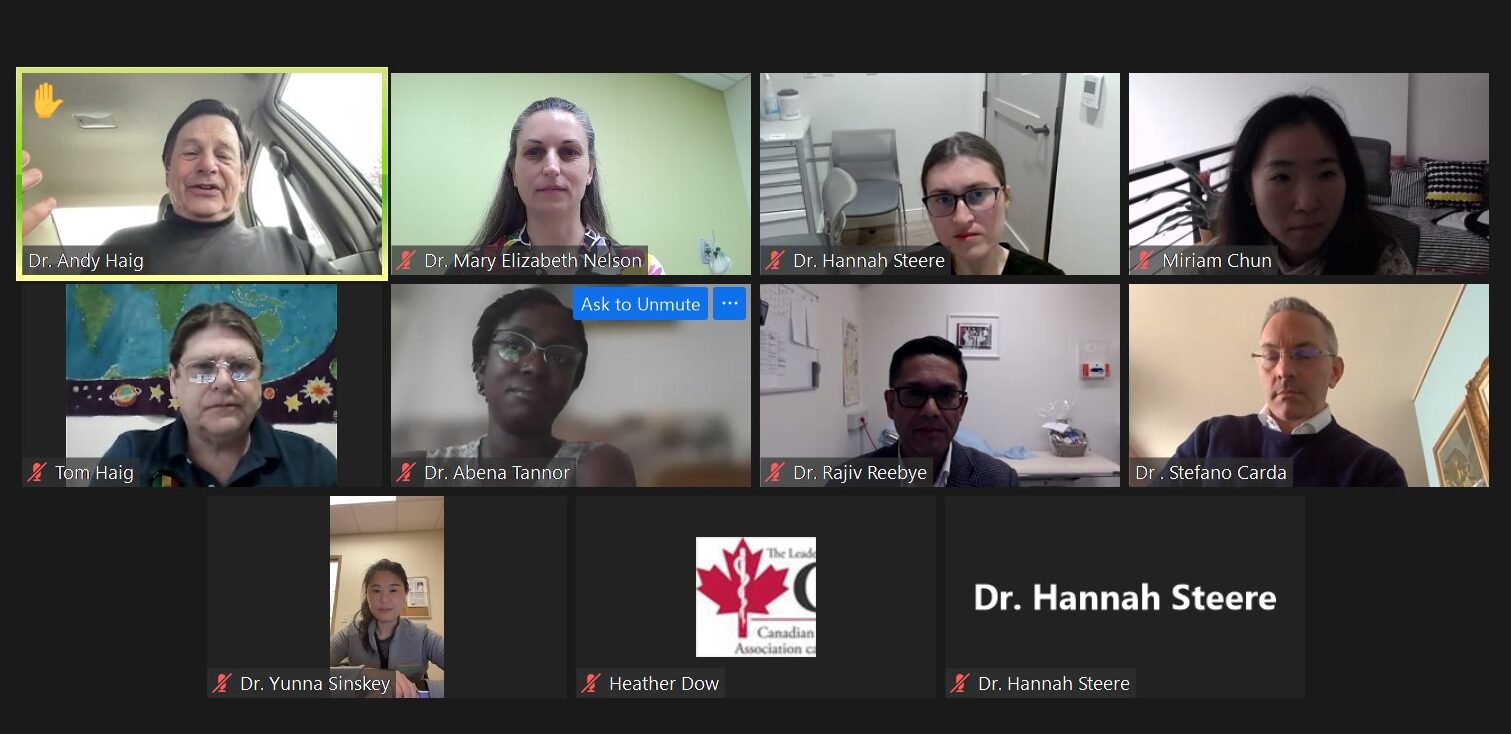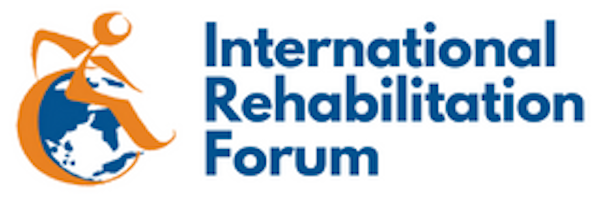The International Rehabilitation Forum presents at CANOSC Event on Creating a Global Network for Sustainable Rehabilitation
April 17, 2023

The International Rehabilitation Forum (IRF) presented at the CANOSC event on April 17, 2023, with the title “Creating a global network for sustainable rehabilitation: insights from the International Rehabilitation Forum.”
Board of directors, Miriam Chun, Dr. Andy Haig, Tom Haig, Dr. Mary Elizabeth Nelson, Dr. Yunna Sinskey, Dr. Hannah Steere, and Dr. Abena Tannor (listed in alphabetical order) spoke about their work at the organization, with a focus on the implementation of the IRF’s Africa Fellowship curriculum and the impact it has made.
The presentation highlighted the importance of collaboration and leadership development between different stakeholders to build a sustainable rehabilitation care system that can meet the needs of people in lower resource countries.
The presentation began by outlining the current state of rehabilitation services around the world. It noted that while there has been significant progress in recent years, there is still a huge gap in access in low and middle income countries. This gap is due to a number of factors, including lack of funding, lack of trained professionals, and lack of access to equipment and supplies. In order to close this gap, it is important to invest in training more professionals, and providing a network where they can be empowered to create innovative solutions.
The presentation argued that a diverse network would allow for the sharing of resources and expertise, and would ensure that people are motivated to continue to lead in advancing access to the rehabilitation services, regardless of where they live.
The presentation concluded by calling on all stakeholders to work together and join the IRF’s mission.

Key takeaways from the presentation
Some of the key takeaways from the presentation were:
- The current state of physical medicine and rehabilitation (PM&R) services in low- and middle- income countries (LMICs) is inadequate.
- The International Rehabilitation Forum (IRF) is playing a leading role in advocating for the needs of PM&R needs globally. The IRF is working to build capacity, connect leaders and stakeholders, and offer a safe space to create innovative solutions in LMICs.
- There are a number of practical strategies that can be used to build or strengthen PM&R services in LMICs. These strategies include:
- Building capacity through training and education
- Disseminate evidence-based practice knowledge through research
- Addressing resource constraints through partnerships and collaboration
Areas you can get involved in the IRF
IRF partners with passionate minds and professionals with a variety of skills and backgrounds. We are physicians, nurses, rehabilitation consumers, allied health professionals, philanthropists, business admins, advocates and more. Together we transform the health paradigm to include rehabilitation medicine in low resource countries.
Currently seeking support in:
- Volunteer faculty for africa fellowship
- Social media enthusiast
- Fundraising
We are also looking for partnerships with medical institutions where IRF’s Africa Fellows can visit and gain hands-on experiences in PM&R practices and multidisciplinary PM&R team.
About CANOSC
Canadian Advances in Neuro-Orthopedics for Spasticity Consortium (CANOSC) is an organization targeted at physicians treating spasticity in an interdisciplinary or multidisciplinary setting. CANOSC Provides innovation, instill confidence and competency, through education and collaboration for enhancement of spasticity care.
About IRF
The International Rehabilitation Forum (IRF) is a non-profit organization that brings passionate people together to build relevant rehabilitation medicine practices in lower resource and isolated countries. The organization provides a variety of services, including rehabilitation medicine training, and advocacy. IRF is committed to creating a world where everyone with a disability has the opportunity to live a full and independent life.

